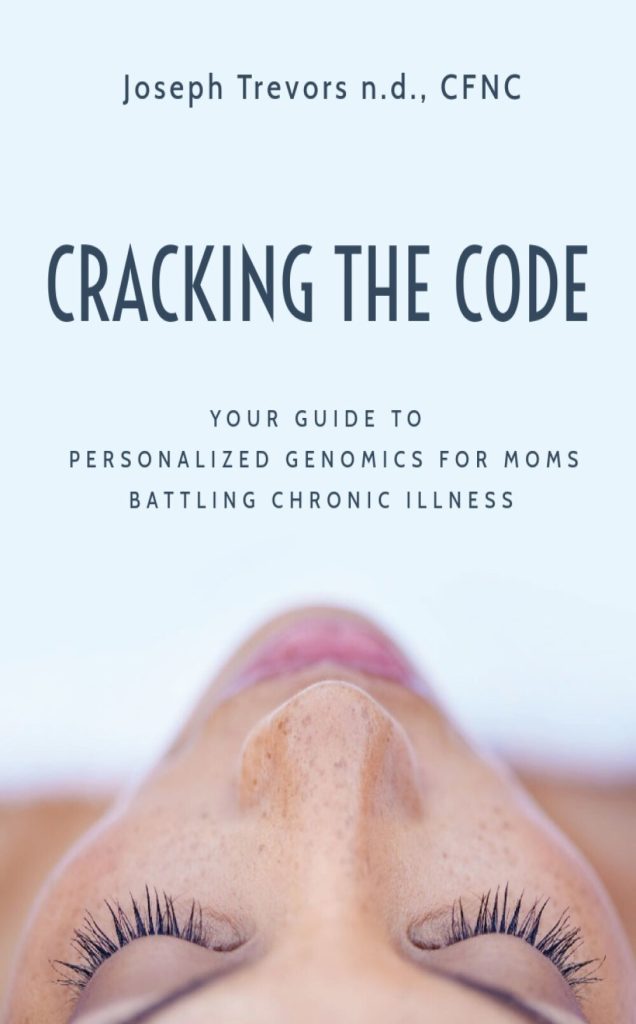Both as a Functional Wellness Practitioner, and in my personal life, I’ve spent a ton of time with many affected fibromyalgia sufferers, or heroes, over the years. Enough so that it’s not at all surprising to me that most will sincerely and enthusiastically exclaim “F*ck Fibro!” on any given day. I have a friend who regularly uses it as a hashtag in her social media, and it’s not at all surprising that there’s even an entire line of such-branded products from mugs, to journals, t-shirts and more on Amazon (and similar retailers) that allow you to express without verbalizing. That said, and from my work with the science of it, I firmly believe there is life beyond fibromyalgia.
And given May 12th is Fibromyalgia Awareness Day, I’d wanted this week’s post to reflect the struggle, AND the potential in helping the millions (potentially you) out there live a life that’s much-less painful and debilitating.
If you’re not familiar, Fibromyalgia is a seriously complex condition characterized by widespread chronic pain, fatigue, and a range of other symptoms (seriously…the list goes on). That said, recent research has shown that fibromyalgia is not just a physical condition (which we’ve suspected). It has genetic and epigenetic aspects that may play a crucial role in its development and progression, and a link to the neurological side of who we are has equally been shown to be impacted (and/or be ‘impactful’).
We also know that at an almost 2:1 ratio, Fibromyalgia is typically found to impact women more than men. And so having the annual awareness day so close to Mother’s Day is both encouraging and sad…but nonetheless vital in awareness as we continue studying, and in helping those affected understand that there are very real options in living a life beyond this debilitating diagnosis.
A study by Häuser et al. (2013) found that genetic and epigenetic factors contribute to the development of fibromyalgia. They discovered that people battling fibromyalgia have specific genetic variations that affect the way their bodies respond to environmental stressors. These variations may also contribute to alterations in DNA methylation patterns that affect the expression of genes involved in the central nervous system, pain perception, and immune function.
These findings suggest that fibromyalgia is a systemic condition that affects multiple organ systems (if you’ve been diagnosed, you know this already) and is influenced by genetic and epigenetic factors. The upside, in my professional opinion, is that by understanding these factors, we can develop personalized treatment plans that target the underlying causes of the condition.

Genomic testing and analysis is a powerful tool that can help us identify these underlying causes. For example, we can analyze genes involved in the gut-brain axis (COMT, MYT1L, TAAR1, CNR1), which play a crucial role in the development of fibromyalgia. By identifying specific genetic variations that affect gut and cognitive function (which is why most find that pharmaceuticals can be ‘hit or miss’ in most cases or, at best, marginally lessen symptoms), we can develop targeted interventions to improve both gut health and the psychological and neurological effects of ‘environment’, and ultimately reduce inflammation, which may improve fibromyalgia symptoms (simply one example, and Fibromyalgia is largely ‘singular’ in nature as to the bio-individuality of the affected, from my experience).
In addition, we can analyze genes (such as GRIA4, RGS4, etc.) involved in the central nervous system and pain perception. By identifying specific genetic variations that affect neurotransmitter function, we can develop targeted interventions to improve mood and reduce pain perception, which are common symptoms of fibromyalgia.
At my clinic, I use genomic testing and analysis (you can find my guide to genomic analysis here) as the foundation in developing personalized treatment plans for patients with fibromyalgia. By understanding the genetic and epigenetic factors involved in the condition itself – taking it back to ‘root cause’, we can develop targeted interventions that address those root causes of each individual person’s condition and ultimately improve (if not eliminate) their symptoms.
And what symptoms, those of you not directly impacted might ask?
- Widespread pain and tenderness in the muscles and joints
- Fatigue and exhaustion, even after sleep
- Headaches and migraines
- Sleep disturbances
- Brain fog and difficulty concentrating
- Irritable bowel syndrome (IBS)
- Depression and anxiety
- and more…unfortunately.
Now, while I obviously advocate for genomic testing and analysis, working with my clinic (virtually almost anywhere around the globe – which includes us drop-shipping your test to your door, or in-person if local to us), there are also a host of things you could (and SHOULD) be doing immediately in the potential of managing or lessening your symptoms:
- Exercise regularly: Although it may be difficult to exercise when you’re in pain, regular physical activity ‘of some sort’ can help improve your symptoms over time. And you may find that low-impact exercises such as yoga, swimming, or walking can be easier for you to manage. That’s fantastic, as they’re equally beneficial to anything else you could try.
- Get enough restful sleep: Sleep disturbances are a common symptom of Fibromyalgia. I get that. Try to establish a regular sleep routine, though, and create a relaxing sleep environment to help improve your sleep quality.
- Manage stress: As I’ve shown you above, the science shows us that stress can exacerbate Fibromyalgia symptoms (sadly ironic, I appreciate). Finding ways to manage stress, such as through meditation, deep breathing exercises, or therapy, can be helpful.
- Follow a healthy diet: Eating a well-balanced diet that includes plenty of fruits, vegetables, lean protein, and healthy fats can help improve your overall health and wellness. And while it’s hard to fight some of the potential dopamine response to unhealthy, processed snacks and fast food, etc., we know that this, too, elevates symptoms of Fibro. As always, or if not under our guidance, eat according to any sensitivities, allergies, etc., that you have been diagnosed with.
- Consider natural treatments: Some natural or holistic treatments, such as acupuncture, massage therapy, stress-management or energetic treatments, and specific supplements, may help reduce Fibromyalgia symptoms. I strongly urge you to always talk to your Professional before trying any new treatment, though.
Look…if you or someone you know is living with fibromyalgia, I encourage you to consider genomic testing and analysis as a tool for developing a personalized treatment plan. By understanding the genetic and epigenetic factors involved in the condition, we can develop targeted interventions that can help improve quality of life and reduce symptoms. And yes, I’m obviously pushing it because it’s the foundation of what we do…but we do it because we know that it provides answers those with Fibromyalgia (and other chronic disease(s)/illness(es), autoimmune, gut, mental health, etc.) are not getting. And that, my friends, is why we get up each and every day prepared to test.
Remember, you’re not alone in this. And no matter where you are in the world, it’s entirely likely we can help. We have an arrangement with our lab whereby we can drop-ship a test to you almost anywhere around the globe (although we admittedly focus primarily on consultation within Canada and US). Thanks to our strategic partners at Practice Better, we’re also able to ‘see you’, virtually, through a secure, medical-grade portal via video or audio.
I fully recognize that Fibromyalgia can be a challenging condition to live with (to say the absolute least), but with the right support and personalized treatment plan, I wholeheartedly believe you can manage your symptoms and improve your quality of life. You can.
If you’re wanting to speak to me about our clinic (and your particular diagnosis, or how we might be able to help), you can book a complimentary consult with me by clicking here.
These studies can provide further insight and evidence to support the information presented in my article:
- “Fibromyalgia and non-celiac gluten sensitivity: a description with remission of fibromyalgia” by Isasi et al. in Rheumatology International (2014)
- “Fibromyalgia and chronic fatigue syndrome: similarities and differences” by White et al. in Rheumatic Diseases Clinics of North America (2011)
- “A randomized controlled trial of tai chi for fibromyalgia” by Wang et al. in Pain (2010)
- “Pain processing in fibromyalgia: a review of recent research” by Staud in Current Rheumatology Reports (2012)
- “Genetic and epigenetic aspects of fibromyalgia” by Häuser et al. in Arthritis Research & Therapy (2013)



